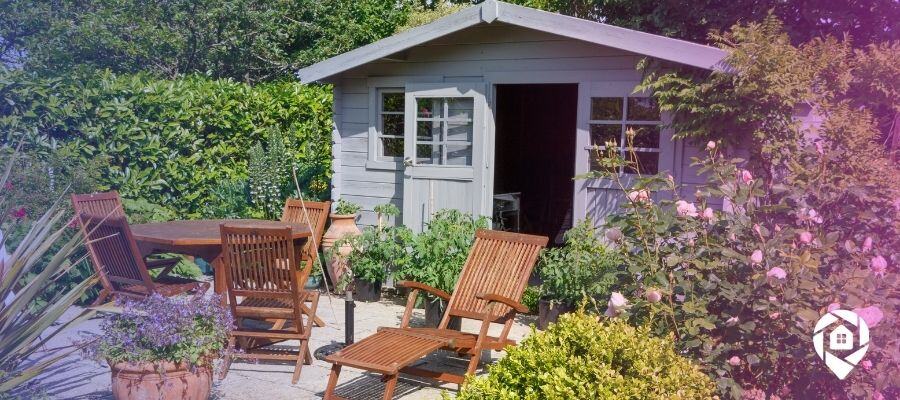
Unlocking the Potential of ADUs in Real Estate Investing

What is an ADU, you might ask? An Accessory Dwelling Unit (ADU) is a secondary housing unit that can be added to a residential property, typically in the backyard or by converting a part of the main house. The concept of ADUs has been gathering steam among real estate investors as a way to maximize rental income and contribute to affordable housing.
Understanding ADUs
ADUs can take on various forms: independent tiny houses in the backyard, basement units, garage conversions, or even units attached to the main house. These units, also known as granny flats or in-law suites, can be rented out to generate additional income, making them a lucrative feature for real estate investors.
Moreover, ADUs also have the potential to increase the value of the property. By offering extra living space, they can attract a wider range of potential buyers or tenants. Another interesting facet of ADUs is that they are considered an environmentally friendly housing option, which can boost the appeal to eco-conscious tenants or buyers.
One big advantage of ADUs is flexibility. Homeowners can use them in different ways depending on their needs. Some might rent them out for extra income, while others may use them as guest houses or even home offices. Families may find ADUs useful for aging parents or adult children who need their own space but want to stay close.
ADUs can also help communities by providing more housing options in areas where space is limited. Since they are smaller than regular homes, they often cost less to build and maintain, making them an affordable choice for both homeowners and renters.
Requirements for an ADU
Building an ADU is more than just about money and space; it's about complying with the local zoning and building requirements that dictate how, where, and what you can build. The first step includes understanding the local zoning laws related to ADUs. Zoning laws may dictate the minimum and maximum size for your unit, the type of unit you can build (for instance, whether you can build a freestanding unit or need to convert existing space), parking requirements, and more.
As for building standards, they usually cover aspects such as minimum ceiling height, access and exit points, utilities setup, and more. It's best to consult with a local architect or builder who understands these regulations to help you design and build an ADU that is up to code.
Perhaps the most important step is getting the right permits. Cities require homeowners to apply for building permits before starting construction.
These permits ensure the ADU is safe and follows all local rules. The process can take weeks or even months, depending on how complicated the project is. Skipping this step can lead to fines or even having to remove the ADU.
Some cities have restrictions on who can live in the ADU. For example, some places require the owner to live on the property if they build an ADU. Others have limits on short-term rentals, meaning you may not be able to use it as an Airbnb.
Another thing to consider is utility connections—some ADUs need separate water, electricity, or sewer lines, which can add to costs. Before starting a project, checking all local rules and talking to experts can save time and prevent expensive mistakes.
Strategic Use of ADUs in Real Estate Investing
ADUs have many strategic benefits for real estate investors. Firstly, given their smaller size, they often cost less than a typical home to build and maintain, making them an efficient asset class.
Furthermore, they enable property owners to increase the number of tenants on the existing property and boost rental income. For instance, if a single-family home is converted to fit an ADU, the property essentially becomes a multifamily property that can accommodate more renters.
Looking at the bigger picture, ADUs also contribute positively to the real estate market in general. They counterbalance housing shortages and high rental rates, especially in dense urban areas. They can be a part of the solution to provide affordable housing.
Another key advantage of ADUs is that they give property owners more control over their investments. Instead of buying a separate rental property, investors can build an ADU on land they already own. This means lower upfront costs and fewer risks compared to purchasing another house. It also allows homeowners to start small, testing the waters of real estate investing without taking on a large mortgage or loan.
ADUs also create opportunities for short-term rentals. In tourist-friendly cities, homeowners can rent out their ADU on platforms like Airbnb or Vrbo, making extra income from travelers. However, it's important to check local laws since some places have restrictions on short-term rentals. If allowed, this strategy can provide a higher return than long-term leasing.
For those looking to sell their home in the future, having an ADU can make the property more attractive to buyers. Families who need extra space or investors who want rental income may be willing to pay more for a home with an ADU. This added value can help sellers get a better price when it’s time to move on.
Additionally, ADUs can be a smart way to prepare for future housing needs. If a homeowner doesn’t need the unit right away, they can still build it and rent it out. Later, they might use it as a home for aging parents, adult children, or even a caregiver. Having an extra living space provides flexibility as family situations change.
Lastly, ADUs offer tax benefits in some areas. Depending on local laws, homeowners may be able to claim tax deductions on ADU-related expenses, such as construction, maintenance, and property management costs. Some cities even provide financial incentives, like grants or low-interest loans, to encourage homeowners to build ADUs. These programs can make it even easier for property owners to add an ADU and benefit from extra income.
Overall, ADUs are a powerful tool in real estate investing. They provide multiple ways to earn income, increase property value, and create flexible living spaces for homeowners and tenants alike. With smart planning and an understanding of local regulations, ADUs can turn a single property into a strong financial asset.
Conclusion
To make the most out of ADUs, thorough knowledge and understanding of the requirements and processes associated with their creation is crucial. Once these rules are mastered, ADUs can become a powerful tool in a real estate investor's arsenal. From generating additional rental income to practically increasing housing availability, ADUs can indeed be a game-changer in the world of real estate investing.

About Samantha Ankney
Samantha is the Social Media Manager at DealMachine, where she oversees all social media strategies and content creation. With 3 years of experience at the company, she originally joined as a Media Specialist, leveraging her skills to enhance DealMachine's digital presence. Passionate about connecting with the community and driving engagement, Samantha is dedicated to sharing valuable insights and updates across all platforms.


